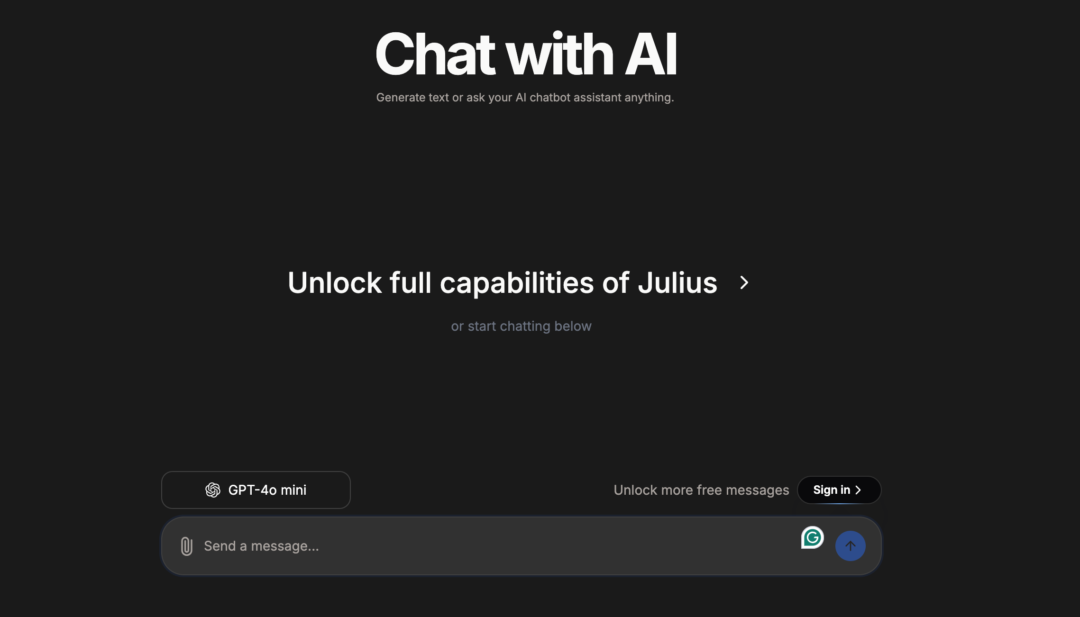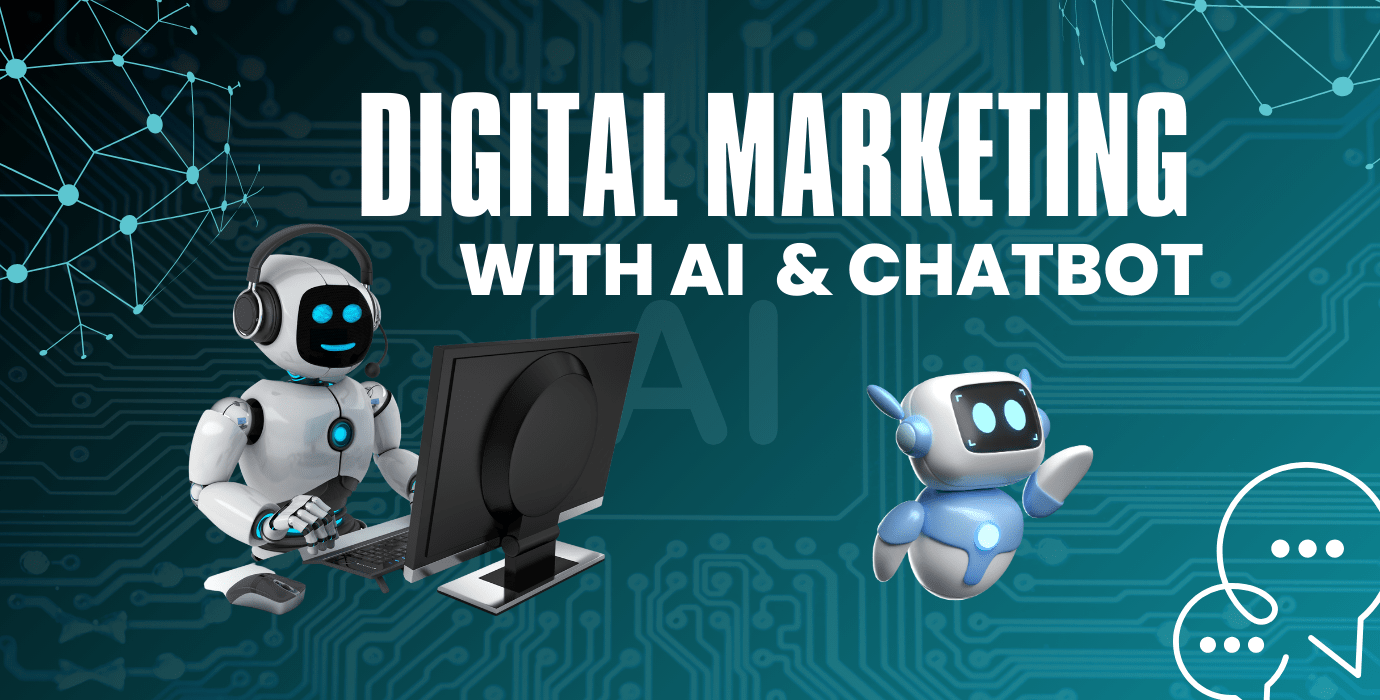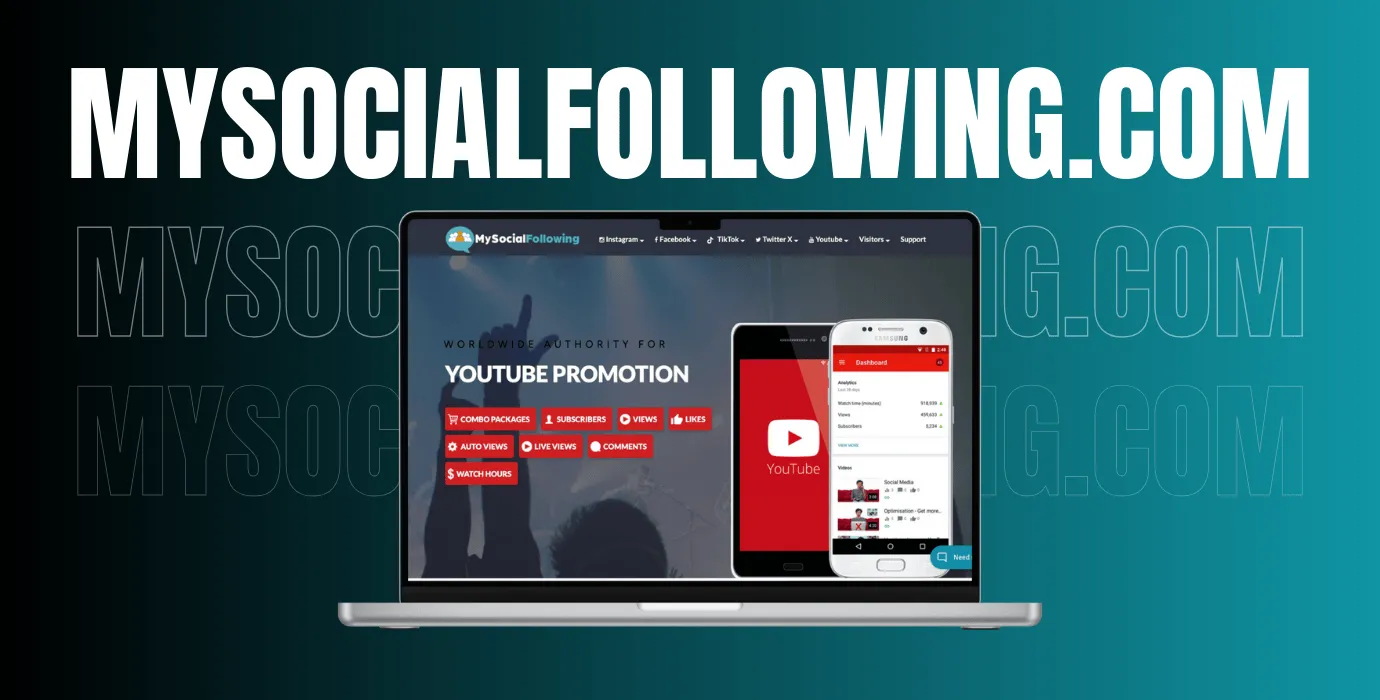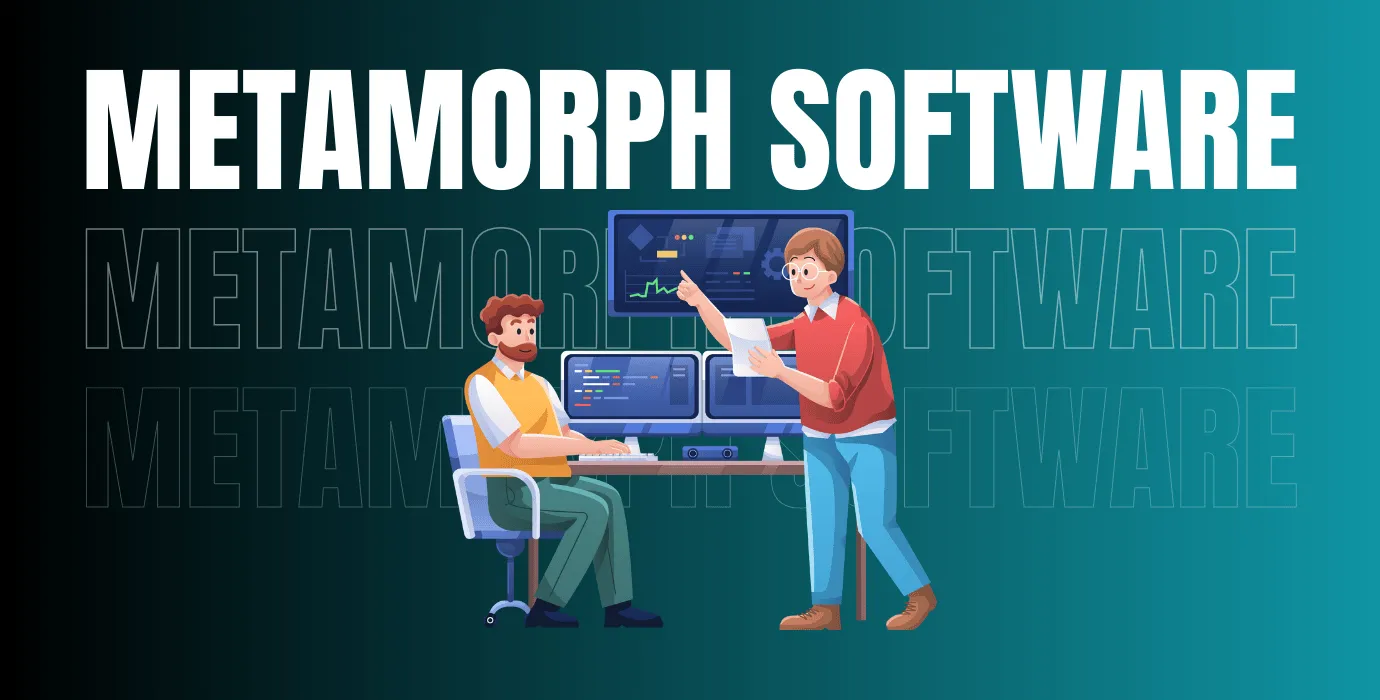Digital Marketing with AI and Chatbot is upgrade the marketing landscape in today’s digital-first world. New technologies, especially Artificial Intelligence (AI) and chatbots, have revolutionized how businesses connect with their audiences. Traditional marketing tactics are no longer enough to keep up with the rapidly evolving consumer behavior and expectations. Digital marketing with Artificial Intelligence (AI) and Chatbots is not just a passing trend; it’s the future.
From personalized content to seamless customer service, AI and chatbots are helping businesses improve customer engagement, streamline operations, and enhance overall marketing strategies. In this article, we will explore the new age of digital marketing powered by AI and chatbots, their impact, and how businesses can use these technologies to stay ahead in a competitive market.
Introduction to Digital Marketing with Artificial Intelligence (AI) and Chatbot
While effective, the traditional approach to digital marketing needs to be revised to address the rapid shifts in consumer behavior and expectations. Consumers are more informed, empowered, and connected than ever before. They expect personalized experiences, real-time interactions, and instant solutions to their problems. This is where Artificial Intelligence (AI) and chatbots come into play.
AI has upgraded digital marketing by automating and enhancing content creation, customer service, data analysis, and personalization. Powered by AI, Chatbots offer a conversational interface that helps businesses to engage with their audience in real-time, providing immediate responses to inquiries and creating a seamless customer experience.
Also, In this new digital marketing age, AI and chatbots are no longer optional they are essential tools for businesses seeking to stay competitive and relevant in the modern world. By using these technologies, brands can improve efficiency, increase customer satisfaction, and drive higher conversions.
How AI is Shaping the Digital Marketing Landscape
AI shapes digital marketing by enabling automation, personalization, and data-driven decision-making. Traditionally, marketing relied heavily on human effort for content creation, customer interaction, and lead generation tasks. AI has streamlined these tasks, making them faster, more accurate, and more efficient.
Automation and Efficiency
AI-powered tools automate mundane tasks such as scheduling posts, sending emails, and analyzing customer data. By automating these repetitive tasks, marketers can focus more on strategic activities, like developing creative campaigns and engaging with customers meaningfully.
Data Analysis and Predictive Analytics
AI is also revolutionizing data analysis. Traditional data analysis methods required a significant amount of time and human labor. With AI, marketers can process vast amounts of data in real-time, gaining valuable insights into customer behavior and market trends. Powered by AI, predictive analytics helps businesses to forecast future trends, helping them make informed decisions about their marketing strategies.
By analyzing customer interactions, AI systems can segment audiences based on their preferences, behaviors, and demographics, helping businesses to deliver targeted marketing campaigns that resonate with individual customers.
Personalized Customer Experiences
Personalization is one of the most potent ways AI is enhancing digital marketing. With AI, businesses can deliver highly customized content, product recommendations, and ads to individual customers based on their unique preferences. This level of personalization creates a more engaging and relevant experience for the consumer, ultimately leading to higher engagement and conversion rates.
The Role of Chatbots in Marketing
Chatbots, powered by AI, are upgrading the way businesses interact with customers. These virtual assistants can answer customer queries, provide product recommendations, and even process transactions in real-time.
24/7 Customer Support
One of the critical benefits of chatbots is their ability to provide round-the-clock customer support. Traditional customer service channels like email or phone support can be slow and inconvenient. Chatbots eliminate these barriers by offering instant responses to customer inquiries, whether it’s about product details, shipping information, or technical support.
Increasing Engagement
Chatbots also enhance customer engagement by offering personalized interactions. For example, chatbots can greet customers by name, suggest products based on browsing history, and offer discounts tailored to their preferences. This level of personalization improves the customer experience and increases the likelihood of a purchase.
Streamlining Lead Generation
AI-powered chatbots can qualify leads by asking pre-programmed questions and collecting important information about the customer’s needs and preferences. This helps sales teams to focus on high-quality leads, improving conversion rates and sales efficiency.
Understanding AI Chatbots: What Makes Them Tick?

AI chatbots are powered by advanced machine learning algorithms and natural language processing (NLP) capabilities. These technologies empower chatbots to understand and process human language, helping them to have meaningful, contextual conversations with users.
Natural Language Processing (NLP)
NLP is the key technology that helps AI chatbots to understand and respond to customer inquiries in a conversational manner. By analyzing the syntax and semantics of a customer’s message, chatbots can interpret the intent behind the words and provide appropriate responses.
Machine Learning
Machine learning is another critical component of AI chatbots. With each interaction, chatbots learn and improve their responses. This ability to “learn” from data makes chatbots more efficient over time, offering more accurate and relevant responses to customer queries.
Integration with Other Platforms
Modern AI chatbots can be integrated with various digital platforms, including social media, messaging apps, and e-commerce websites. This omnichannel functionality ensures customers can interact with the chatbot across multiple touchpoints, providing a seamless experience.
Personalization: The Heart of AI-Driven Marketing
Personalization is one of the most significant benefits of AI in digital marketing. By using AI, businesses can tailor their marketing efforts to meet the individual needs of their customers. Personalization has proven to increase customer loyalty, engagement, and conversions.
AI-Powered Product Recommendations
AI can analyze customer data, including browsing history and purchase patterns, to recommend products most likely to resonate with individual customers. For instance, Amazon’s recommendation engine uses AI to suggest products based on a user’s previous searches and purchases, increasing the likelihood of additional sales.
Dynamic Content Customization
AI can also customize website content in real-time based on a user’s preferences. For example, a fashion retailer could use AI to display different clothing items depending on the customer’s location, gender, or previous purchases, creating a highly personalized shopping experience.
Targeted Advertising
AI’s ability to analyze customer data helps businesses to create targeted advertising campaigns that speak directly to the needs and desires of their audience. Businesses can use AI to segment customers based on various factors to ensure that their ads reach the right people at the right time.
Automating Customer Interactions with AI
AI-powered tools can automate various customer interactions, such as inquiries, product recommendations, and post-purchase follow-ups. By streamlining these processes, businesses can improve efficiency and deliver a better overall customer experience.
Chatbots and Customer Service Automation
As mentioned earlier, chatbots upgrade customer service by providing instant responses to customer inquiries. These AI-driven virtual assistants can handle a wide range of tasks, from answering questions to processing orders, without human intervention.
Marketing Automation
AI also plays a crucial role in marketing automation. With AI-powered tools, marketers can automate email campaigns, social media posts, and ad targeting. This helps businesses to engage with customers at scale while ensuring the messages are relevant and personalized.
Predictive Customer Support
AI’s predictive capabilities can be used to anticipate customer needs. For example, AI-powered systems can detect when a customer might need assistance, based on their browsing behavior or past interactions with the brand. By proactively offering help, businesses can enhance the customer experience and increase satisfaction.
Content Creation with AI: Revolutionizing Copywriting

AI is also changing the way content is created. From blog posts to social media updates, AI tools can generate high-quality content quickly and efficiently. This is particularly valuable for businesses that need to produce large volumes of content regularly.
AI Writing Assistants
Artificial Intelligence writing assistants, like OpenAI’s GPT-3 and Act! AI Writing Assistant is revolutionizing the content creation process. These tools can generate well-written articles, social media posts, and marketing copy in a fraction of the time it would take a human writer.
Enhancing SEO with AI
AI also improves SEO strategies by generating keyword-optimized content and helping businesses target the right audience. AI tools can analyze search trends and competitor content to optimize marketing materials for maximum visibility.
Reducing Content Production Costs
Businesses can significantly reduce the cost of producing marketing materials by automating content creation. This helps companies to invest more resources into other areas, such as customer acquisition and product development.
AI and Chatbots in E-commerce Marketing
E-commerce is one of the industries benefiting most from AI and chatbots. From product recommendations to customer support, these technologies are upgrading how online stores operate.
AI-Powered Product Discovery
AI helps e-commerce businesses enhance the product discovery process by offering personalized recommendations based on user behavior. For example, when a customer browses an online store, AI can suggest products that match their interests and preferences, improving the likelihood of a sale.
Customer Service Automation
In e-commerce, customer support chatbots are especially valuable. They help customers find products, track orders, and answer frequently asked questions without human intervention. This automation reduces wait times and improves customer satisfaction.
The Power of Data Analytics in Digital Marketing
AI and data analytics go hand in hand in modern marketing. By collecting and analyzing data from various sources, AI provides valuable insights that help businesses optimize their marketing efforts and improve performance.
Real-Time Insights
AI tools can also provide real-time insights into marketing performance, helping businesses to adjust their campaigns quickly. This agility is essential in today’s fast-paced digital landscape, where trends can shift rapidly.
Future Trends: What Lies Ahead for AI and Chatbots in Digital Marketing?
As AI and chatbots continue to evolve, technological advancements will significantly shape the future of digital marketing. Several emerging trends point toward more sophisticated and seamless integrations between AI, chatbots, and marketing strategies. Here’s a look at what the future holds for these innovations.
Advanced Personalization
AI will continue to push the boundaries of personalization. Future AI-driven marketing tools can offer even more precise, context-aware recommendations based on an individual’s preferences, behaviors, and engagement patterns. The ability to deliver hyper-personalized experiences will extend beyond product suggestions to encompass personalized content, offers, and even pricing. AI will also help marketers deliver content that adapts in real-time, responding to a customer’s mood, activity, or stage in the buying journey.
Multimodal Chatbots
The future of chatbots is headed toward multimodal capabilities. These chatbots won’t just communicate via Text but can use images, videos, and even voice interactions. As natural language processing (NLP) technology improves, chatbots can recognize complex language nuances, such as tone, emotion, and sarcasm. This will help them to respond more intelligently and contextually, enhancing the customer experience.
AI in Voice Search and Voice Commerce
With the growing popularity of voice-activated assistants like Amazon Alexa, Google Assistant, and Siri, voice search and voice commerce are becoming a significant part of the digital marketing landscape. Marketers will use AI to optimize content for voice search and create more interactive, voice-driven shopping experiences. Chatbots will also be integrated into voice interfaces, helping businesses to engage with customers via voice-enabled devices.
AI and Chatbots in Social Media Marketing
As social media platforms evolve, AI-powered tools and chatbots will become increasingly prevalent. From automating customer service on social platforms to analyzing sentiment and engagement in real-time, these tools will help brands manage their presence more effectively. AI-driven insights will empower businesses to craft targeted campaigns based on social media trends, ensuring that brands stay ahead of the competition and deliver messages that resonate with their audience.
Ethics and Privacy Considerations
With the rise of AI and chatbot technologies, businesses must be mindful of ethical concerns about data privacy and customer trust. The collection of personal data for AI-driven marketing campaigns must be done in compliance with regulations like the GDPR and CCPA. Future digital marketing strategies must strike a balance between personalization and privacy, ensuring that customer data is handled responsibly and transparently.
The Rise of AI-Powered Creatives
AI will play an increasingly important role in the creative aspects of digital marketing. From generating AI-generated content (like blog posts and social media updates) to assisting in creating visuals and video content, marketers will harness AI to produce high-quality, engaging content faster and more efficiently. AI tools that can generate graphics, animations, and music will further enhance creative campaigns, helping businesses to scale their content production efforts.
Enhancing Customer Retention with AI and Chatbots
In today’s fast-paced digital world, retaining customers is as important as acquiring new ones. AI and chatbots are revolutionizing customer retention strategies by providing continuous, personalized support. By using AI-driven insights, businesses can anticipate customer needs, send timely and relevant follow-up messages, and make offers based on past behavior.
For example, AI tools can analyze customer purchase history and browsing patterns to recommend products that align with their preferences, encouraging repeat purchases. Similarly, chatbots can handle after-sales support, answering customers’ questions post-purchase, thus reducing friction and improving overall satisfaction.
Through automated feedback loops and personalized engagement, AI systems create ongoing connections that enhance customer loyalty and lifetime value. Companies can build trust by delivering value through timely and helpful interactions that are not robotic but human-like and caring.
AI-Powered Sentiment Analysis for Brand Management
Sentiment analysis is essential to brand management, and AI is taking this to the next level. AI tools analyze customer feedback across multiple channels, from social media comments to product reviews and surveys, to determine how customers feel about a brand or product.
This real-time analysis helps businesses to react quickly to customer opinions, whether positive or negative. By understanding consumer sentiments, businesses can adjust their marketing strategies, address potential issues before they escalate, and engage with their audience in a way that feels authentic and timely.
For example, AI can detect negative sentiment from a customer tweet or social media comment, prompting a chatbot to immediately resolve the issue preventing any public relations crises from arising. This proactive approach enhances customer satisfaction and demonstrates a brand’s commitment to listening and improving.
AI and Chatbots in Social Media Marketing
Social media marketing has become a cornerstone of digital marketing strategies, and AI and chatbots are integral in this space. With billions of users engaging on social platforms daily, businesses must manage customer interactions efficiently.
AI tools automate social media posts, analyze audience behavior, and optimize ad campaigns for better performance. By studying patterns in user engagement, AI can suggest the best times to post, the most engaging content types, and the most effective ad targeting strategies. Moreover, AI can automatically create content that resonates with different audience segments.
On the chatbot side, many brands are integrating chatbots into their social media platforms to answer questions, make product recommendations, and even complete transactions. This automation ensures that businesses can respond to inquiries and provide real-time support even during off-hours, offering a seamless experience that customers expect in today’s always-on digital environment.
AI-Driven Marketing Automation Tools
AI is central to automating marketing processes, making it easier for businesses to reach the right audience with minimal manual intervention. With AI-powered marketing automation tools, businesses can create highly targeted campaigns that send messages to the right people at the right time.
For example, AI tools can segment customers based on their behaviors, interests, and demographics, helping businesses to send personalized emails or SMS messages that align with individual preferences. AI can also trigger automated workflows that nurture leads through the sales funnel, increasing the likelihood of conversions without requiring continuous oversight from marketing teams.
Marketing automation powered by AI also reduces human error and ensures consistency across all customer touchpoints, from email marketing campaigns to social media interactions.
The Role of AI in Programmatic Advertising
Programmatic advertising, the automated process of buying and selling digital ads in real time, has seen amazing growth, and AI is playing a crucial role in optimizing this process.
AI can analyze vast amounts of data through machine learning algorithms to identify audience segments most likely to engage with specific ads. AI also assists in the dynamic adjustment of bids based on real-time performance data, ensuring that advertising budgets are allocated efficiently.
By automating the ad buying process and using AI to determine the best possible placements and timings, programmatic advertising reduces waste and increases the ROI of ad campaigns.
AI-Driven Influencer Marketing
Influencer marketing has become essential to many businesses’ digital marketing strategies. However, identifying the right influencers and managing influencer relationships can take time and effort. AI simplifies this process by offering data-driven insights that help businesses identify the most relevant influencers for their brand.
AI tools analyze factors such as engagement rates, audience demographics, and content relevance to suggest influencers who align with the company’s values and target audience. By using AI, businesses can choose influencers with the greatest potential to impact their target market, increasing the efficiency of influencer marketing campaigns.
AI can also help monitor the performance of influencer campaigns, assessing metrics such as click-through rates, conversion rates, and overall brand sentiment, ensuring that the business gets the most out of its partnerships.
AI for Real-Time Campaign Optimization
One of AI’s most powerful advantages in digital marketing is its real-time campaign optimization. Unlike traditional marketing campaigns, which require time-consuming adjustments, AI tools continuously analyze campaign performance and suggest changes that can improve results immediately.
For example, AI can analyze customer interactions with ads, social media posts, or email campaigns and provide insights on how to tweak messaging, visuals, and targeting. It can also identify which audience segments perform best and adjust the ad spending to allocate more resources to these high-performing segments.
Real-time optimization ensures that campaigns align with customer behaviors and market conditions, helping businesses to stay agile and responsive to changing circumstances.
AI-Powered Voice Search Marketing
The rise of voice-activated devices like Amazon’s Alexa, Google Assistant, and Apple’s Siri has changed how people search for information online. Voice search queries tend to be more conversational and longer than text-based searches, so businesses must optimize their content for voice search.
Digital Marketing with AI and Chatbot plays a pivotal role in optimizing SEO strategies for voice search. AI tools are capable of analyzing voice search trends and assisting marketers in refining their SEO efforts to cater to the increasing demand for natural language processing. By integrating AI-powered tools, businesses can enhance the discoverability of their websites and content, ensuring they remain at the forefront of this rapidly growing voice search trend.
For example, businesses can optimize their FAQs and long-tail keywords to match the conversational nature of voice searches, increasing their chances of appearing in voice search results. With voice search accounting for an increasing share of web traffic, this optimization is critical for staying competitive.
The Role of AI in Customer Journey Mapping
Mapping the customer journey has always been a critical element of digital marketing, but AI is taking it to new heights. AI tools can analyze vast amounts of customer data to track the customer’s interactions across multiple touchpoints, from initial awareness to post-purchase behavior.
Digital Marketing with AI and Chatbot is upgrading the way businesses understand the complete customer journey. By using AI technologies, companies can create more accurate buyer personas, develop highly targeted marketing strategies, and identify potential roadblocks in the customer experience. AI-driven customer journey mapping helps businesses deliver personalized experiences at every stage of the customer lifecycle, improving engagement and increasing the likelihood of conversions.
Hyper-Personalization with AI and Chatbots
While personalization has always been a crucial element of digital marketing, AI is taking it a step further by enabling individual hyper-personalization. AI-powered tools analyze real-time customer behavior, browsing patterns, and historical interactions to deliver marketing messages tailored to users’ preferences, needs, and emotions.
Digital Marketing with AI and Chatbot plays a crucial role in enhancing customer interactions, and chatbots are vital to this process. They can analyze user responses in real-time and adjust the conversation flow accordingly. For example, suppose a customer shows interest in a particular product or service. In that case, the chatbot can instantly recommend similar options, provide tailored discounts, or offer additional details to encourage a purchase. So, This type of micro-targeted marketing enhances customer satisfaction and significantly increases the likelihood of conversion.
Moreover, AI’s ability to personalize messaging at such a granular level improves user experience and strengthens brand loyalty, as customers feel more understood and valued. Through hyper-personalization, businesses can drive deeper customer engagement and develop stronger emotional connections with their audience.
AI in Predictive Analytics for Digital Marketing Strategy
Predictive analytics is one of the most powerful applications of AI in digital marketing. AI-driven tools can analyze vast amounts of historical data to predict future trends, customer behaviors, and purchasing patterns. Using machine learning algorithms, businesses can forecast demand, identify emerging market opportunities, and optimize pricing strategies.
For example, AI can analyze customer interactions, search patterns, and social media activity to predict which products will be in demand in the coming months. By using these insights, businesses can adjust their inventory, target marketing campaigns more effectively, and optimize their product offerings.
In Digital Marketing with AI and Chatbot, predictive analytics helps marketers make data-driven decisions and adjust strategies in real-time. This ensures that businesses always align with customer interests, significantly improving campaign performance and ROI.
AI-Driven Voice Commerce: A New Frontier for E-Commerce Marketing
Voice search is already influencing how consumers find information, but a new trend is emerging voice commerce. AI-powered voice assistants like Amazon’s Alexa, Google Assistant, and Apple’s Siri are increasingly becoming the go-to channels for purchasing products directly through voice commands. This shift is upgrading the e-commerce landscape, opening up new opportunities for digital marketing.
Voice commerce empowers consumers to purchase items, check on orders, and receive product recommendations without interacting with a screen. This means creating voice-optimized shopping experiences for businesses, where products are easily discoverable and can be ordered with a simple voice command.
Digital Marketing with AI and Chatbot empower marketers to use AI to optimize product listings for voice search and create voice-enabled ads that drive conversions through spoken interactions. Integrating voice commerce into digital marketing strategies will help businesses cater to a growing segment of consumers who prefer hands-free shopping experiences, making it an essential element of future e-commerce success.
AI in Influencer Matching: Perfectly Aligning Brands with the Right Partners
Influencer marketing has become one of the most effective digital marketing strategies. However, identifying the right influencers can be challenging. AI is now helping businesses select influencers who align perfectly with their brand values, audience demographics, and marketing goals.
In the realm of Digital Marketing with AI and Chatbot, AI algorithms analyze influencer profiles, engagement metrics, follower demographics, and content types to recommend the best matches for a brand’s campaign. By automating this process, businesses can identify famous influencers who resonate deeply with their target audience, leading to more authentic and successful campaigns. This use of AI streamlines influencer selection, ensuring that brands collaborate with individuals whose audience aligns closely with their products, fostering more meaningful connections and driving higher engagement rates.
AI also helps track influencer performance in real time, providing valuable insights into engagement rates, sentiment, and conversions. So, This data-driven approach enhances the effectiveness of influencer marketing and ensures that brands are getting the most out of their partnerships.
AI and Chatbots in Crisis Management and Customer Support
AI and chatbots are becoming indispensable in crisis management, particularly in industries where customer satisfaction is paramount. When a company faces a public relations issue or a product failure, AI-powered systems can quickly respond to customer inquiries, provide accurate information, and mitigate the impact of adverse situations.
Digital Marketing with AI and Chatbot is becoming increasingly crucial for managing high volumes of inquiries during crises. Chatbots, in particular, are essential for providing instant, consistent, and accurate responses, ensuring that customers feel heard and valued even in stressful circumstances. This immediate support can help prevent customer frustration and minimize the potential damage to a brand’s reputation.
And, AI can monitor social media channels, identifying and addressing emerging issues before they escalate. By staying on top of customer sentiment and responding proactively, businesses can maintain customer trust and minimize the impact of crises on their brand.
The Role of AI in Dynamic Pricing Strategies
Dynamic pricing is a strategy that helps businesses to adjust the prices of their products or services based on various factors, such as demand, competitor pricing, or market trends. AI plays a crucial role in dynamic pricing by analyzing these factors in real-time and adjusting accordingly.
AI-driven tools can monitor competitor prices, customer behavior, and weather patterns to suggest optimal pricing strategies. For instance, an AI tool might recommend lowering prices during off-peak hours or increasing prices during high-demand periods, maximizing revenue without losing customers.
Similarly, Digital Marketing with AI and Chatbot has upgrading dynamic pricing strategies, helping businesses stay competitive in rapidly changing markets. It offers personalized pricing to customers based on their purchasing history or location. This strategy is particularly beneficial in industries like travel, hospitality, and e-commerce, where prices fluctuate based on supply and demand.
AI and Chatbots for Seamless Multilingual Support
In this globalized world, providing multilingual customer support is essential for businesses that operate in multiple regions. AI-powered chatbots can bridge the language gap by offering real-time translations and multilingual support.
AI tools can automatically detect a user’s preferred language and respond in real time. And ensuring that customers receive the same level of service regardless of their language or location. So, this seamless support enhances the customer experience and helps businesses expand their reach to international markets.
With AI and chatbots, businesses can provide 24/7 support in multiple languages, ensuring customers worldwide can access help whenever needed. This accessibility improves customer satisfaction and strengthens brand loyalty across diverse audiences.
Embracing the Future of Digital Marketing with AI and Chatbots
Digital Marketing with AI and Chatbot is upgrading the landscape of modern business strategies. The new age of digital marketing is characterized by automation, personalization, and real-time engagement. AI and chatbots are at the forefront of this transformation, offering businesses a wealth of opportunities enhancing their marketing strategies. As AI continues to evolve, businesses that embrace these technologies will gain a competitive edge by delivering more brilliant, more efficient, and more engaging marketing campaigns. However, marketers need to use these tools responsibly, ensuring that customer trust and privacy are always prioritized.
Digital Marketing with AI and Chatbot is quickly becoming a cornerstone for businesses striving to stay relevant in an increasingly digital world. Integrating artificial intelligence and chatbots into marketing strategies has become essential. The fusion of AI with chatbot technology is unlocking new avenues for enhanced customer engagement, providing seamless experiences. By embracing AI, marketers can access real-time insights, optimize content delivery, and create tailored experiences that meet customers’ ever-evolving needs.
The future of digital marketing lies in a blend of advanced AI capabilities. So, AI-powered Chatbots are already pivotal in automating conversations, providing instant support, and streamlining customer interactions. Their capabilities will continue to expand, enabling businesses to communicate with customers more effectively and efficiently than ever before.




